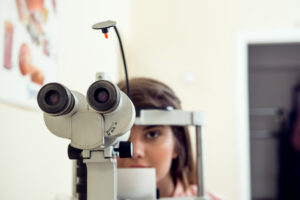Embracing the Challenge of Dry Eye Syndrome
Living with dry eye syndrome can be a daily struggle, impacting individuals of all ages and backgrounds. This chronic condition, characterized by inadequate tear production or poor tear quality, can lead to discomfort, blurred vision, and a reduced quality of life. However, with the right knowledge, support, and care, it is possible to not only cope with dry eye syndrome but also thrive. In this comprehensive guide brought to you by Dr. Kasture Diagnostic Centre, we will explore the intricacies of dry eye syndrome, discuss its causes and symptoms, and equip you with practical strategies to manage and improve your eye health.
Unraveling the Mystery of Dry Eye Syndrome
Dry eye syndrome, also known as kerato conjunctivitis sicca, is a condition where the eyes lack sufficient lubrication and moisture. Tears play a vital role in maintaining the health of the eyes by nourishing and protecting the delicate ocular surface. When the tears are inadequate or evaporate too quickly, the eyes become dry and irritated, leading to various uncomfortable symptoms.
Understanding the Causes and Risk Factors
To effectively manage dry eye syndrome, it is essential to comprehend its underlying causes and risk factors. Age, gender, certain medications, and medical conditions like diabetes and autoimmune disorders can increase the likelihood of developing dry eyes. Environmental factors such as dry air, wind, and air conditioning can also exacerbate symptoms. By identifying these triggers, individuals can take proactive steps to minimize their impact on their eye health.
The Varied Symptoms of Dry Eye Syndrome
Dry eye syndrome can manifest in diverse ways, making its diagnosis challenging at times. Common symptoms include persistent dryness, burning sensations, redness, sensitivity to light, excessive tearing, and blurred vision. Patients may also experience a sensation of having grit or foreign particles in their eyes. It is crucial to recognize these symptoms early and seek professional evaluation to initiate timely treatment.
Seeking Professional Help – Dr. Kasture Diagnostic Centre’s Expertise
Dr. Kasture Diagnostic Centre, renowned for its specialized eye care, offers comprehensive solutions for dry eye syndrome. Led by Dr. Aditi Kasture, an expert in the field, the centre provides a patient-centric approach, tailoring treatment plans to individual needs. By leveraging cutting-edge technology and evidence-based therapies, the centre aims to improve the quality of life for patients living with dry eye syndrome.
Treatment Options for Dry Eye Syndrome
The management of dry eye syndrome is multifaceted, with various treatment options available to alleviate symptoms effectively. Artificial tears, which mimic the composition of natural tears, provide instant relief by lubricating the eyes. Additionally, prescription eye drops that target inflammation and promote tear production can be recommended based on individual needs. For severe cases, procedures like punctal plugs, which help retain tears on the eye’s surface, and intense pulsed light (IPL) therapy may be considered.
Lifestyle Adjustments and Home Remedies
Alongside professional treatments, making lifestyle adjustments and incorporating home remedies can significantly contribute to managing dry eye syndrome. These adjustments include taking regular breaks during screen time, maintaining adequate room humidity, using protective eyewear in harsh environmental conditions, and staying well-hydrated. Warm compress therapy and proper eyelid hygiene are simple yet effective home remedies that can provide relief from dry eye symptoms.
Diet and Nutrition for Better Eye Health
The role of nutrition in promoting eye health cannot be underestimated. A diet rich in omega-3 fatty acids, found in foods like fish, flaxseeds, and walnuts, can help reduce inflammation and support tear production. Antioxidant-rich foods such as leafy greens, carrots, and citrus fruits are also beneficial for overall eye health.
Adopting Healthy Eye Habits
Developing healthy eye habits is essential in managing dry eye syndrome and preserving eye health. Avoiding prolonged screen time, practicing the 20-20-20 rule (looking at something 20 feet away for 20 seconds every 20 minutes), and maintaining a comfortable reading distance are some of the habits that can benefit those living with dry eyes.
The Impact of Dry Eye Syndrome on Mental Health
Living with chronic discomfort can take a toll on mental well-being. Dry eye syndrome can lead to feelings of frustration, anxiety, and even depression. It is crucial for individuals to seek emotional support and communicate their challenges with loved ones and healthcare professionals. Understanding the emotional impact of dry eye syndrome is essential in providing holistic care and support.
Embracing a Positive Outlook
While dry eye syndrome can present daily challenges, it is essential to maintain a positive outlook and embrace effective strategies to manage the condition. Dr. Kasture Diagnostic Centre’s expert team emphasizes the power of knowledge, compassion, and innovative treatments in helping patients achieve better eye health and an improved quality of life.
Navigating the Journey of Living With Dry Eye Syndrome
Living with dry eye syndrome may present unique challenges, but with the right resources and support, individuals can navigate this journey with resilience and hope. Dr. Kasture Diagnostic Centre, with its commitment to personalized eye care and advanced treatments, stands as a beacon of hope for those seeking relief from dry eye symptoms. By understanding the condition, adopting healthy habits, seeking professional help, and nurturing a positive outlook, patients can enhance their eye health and embrace life with clarity and comfort.




